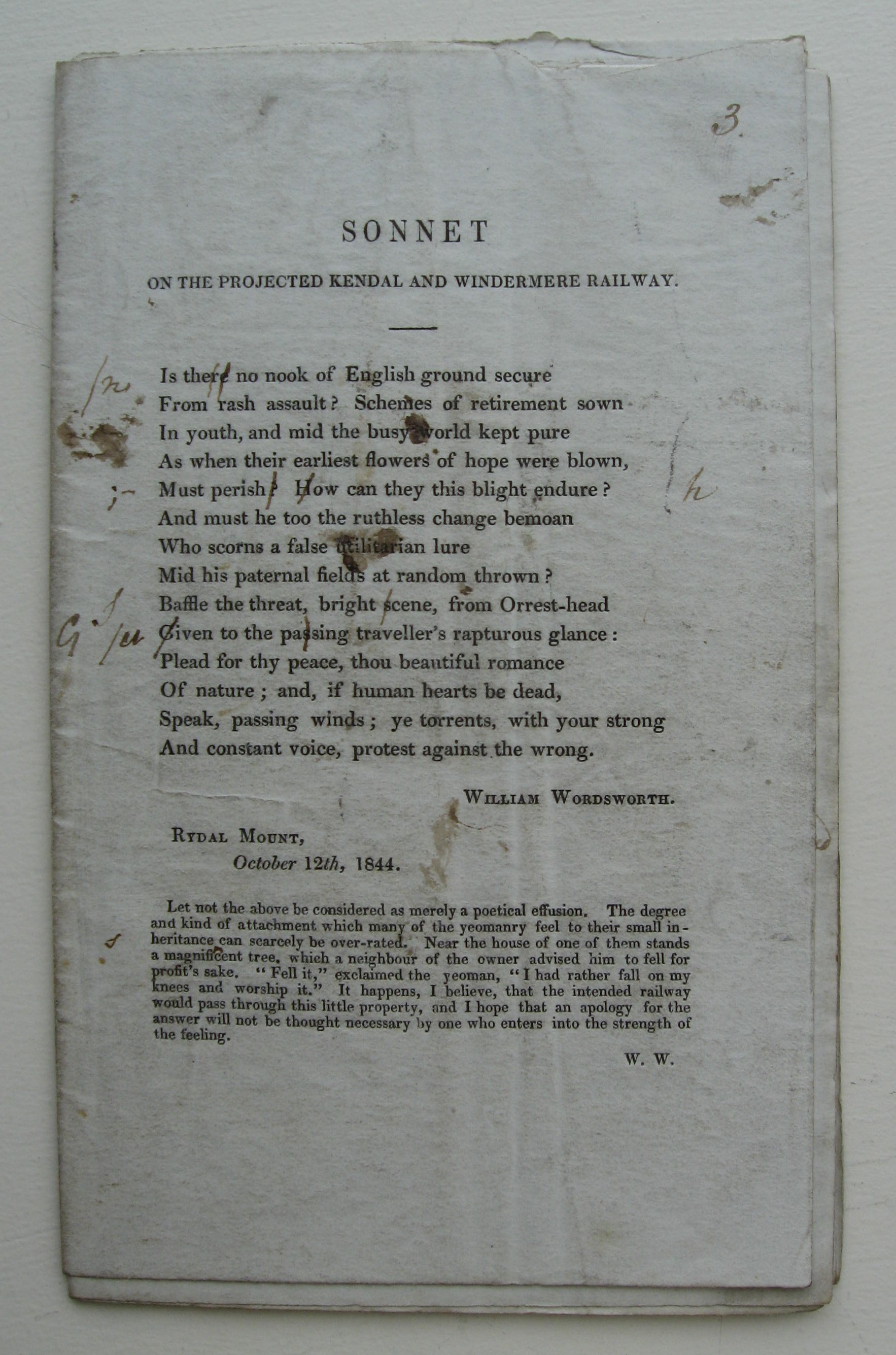William Wordsworth and Tourism
William Wordsworth welcomed the right sort of tourist. He wrote his guidebook for “persons of pure taste throughout the whole Island, who by their visits, often repeated, to the Lakes to the North of England, testify that they deem the district a sort of national property, in which every man has a right and interest who has an eye to perceive and a heart to enjoy”.
However, he was critical of those who did not appreciate the area. He had the following advice for those engrossed in their guidebooks who did not take the time to look at the very beauties that the guide described: “Then throw by your Books, and the study begin; / Or sleep, and be blameless, and wake at your Inn”.
He reserved worse censure for those whose actions proved detrimental to the spirit and beauty of the Lake District. His guidebook was scathing about outsiders building houses in the area that were completely out of character with the aesthetics of nature.

In addition, one of his main objections to the Kendal and Windermere railway was the sheer number of tourists it would bring and how this would spoil the peace of the area, the very thing the tourists themselves were seeking: “Go to a pantomime, a farce, or a puppet-show, if you want noisy pleasure.. .but may those who have given proof that they prefer other gratifications continue to be safe from the molestation of cheap trains pouring out their hundreds at a time along the margin of Windermere”.
On the other hand, as Wordsworth’s literary
fame grew in the last 20 years of his life, he became a tourist attraction
himself. His daughter Dora laughed at the ruses that people undertook
to meet the poet: “One man sent in a note well written with some
needles to sell price 3d. — ‘as a Lover of Poetry the Author of the
Excursion would confer an additional great obligation by paying the
bearer in person’ ”.
William Wordsworth, Sonnet. On the Projected
Kendal and Windermere Railway, composed 12 October 1844, printed
proof copy, The Wordsworth Trust.
